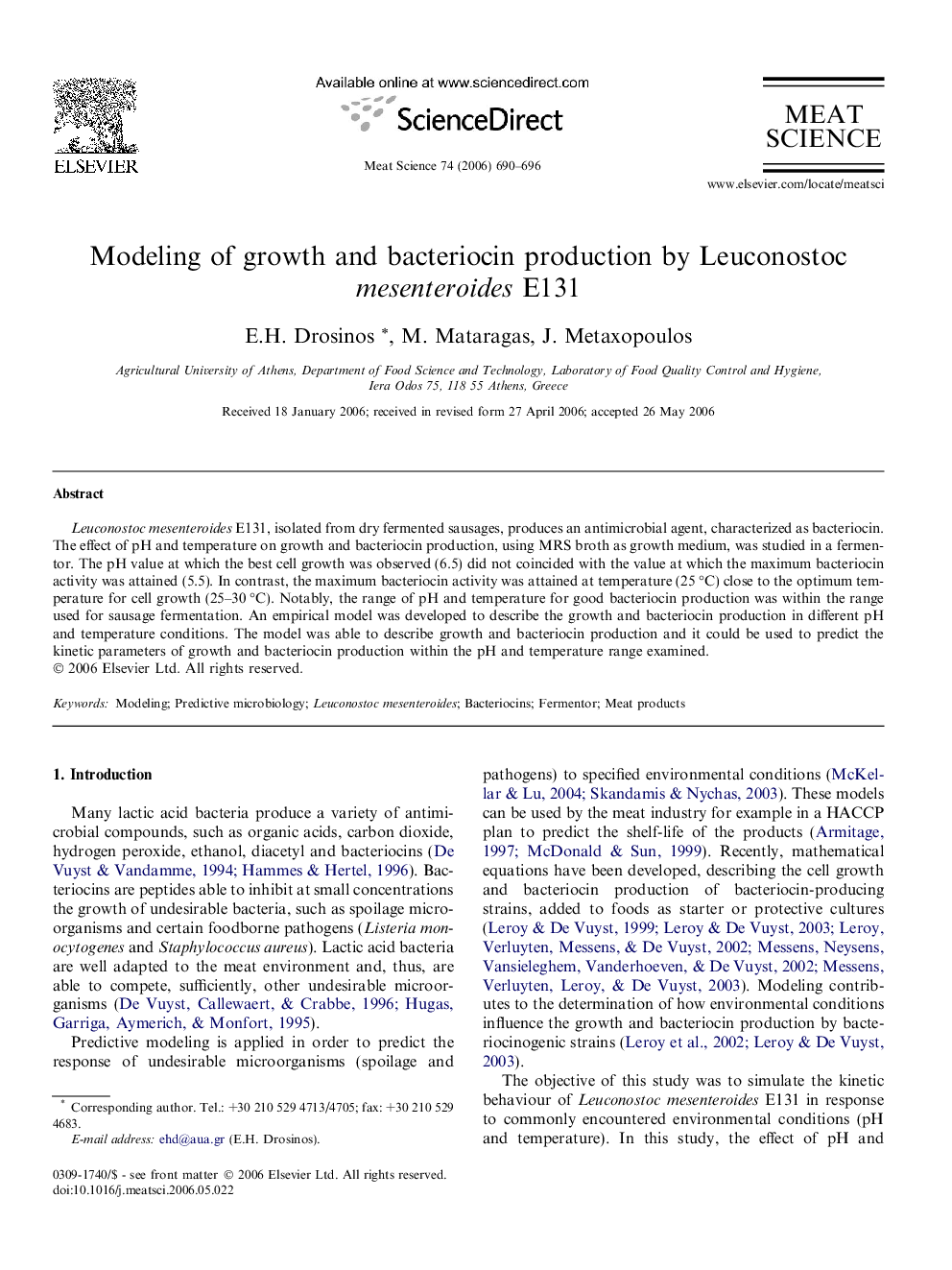| Article ID | Journal | Published Year | Pages | File Type |
|---|---|---|---|---|
| 2451944 | Meat Science | 2006 | 7 Pages |
Leuconostoc mesenteroides E131, isolated from dry fermented sausages, produces an antimicrobial agent, characterized as bacteriocin. The effect of pH and temperature on growth and bacteriocin production, using MRS broth as growth medium, was studied in a fermentor. The pH value at which the best cell growth was observed (6.5) did not coincided with the value at which the maximum bacteriocin activity was attained (5.5). In contrast, the maximum bacteriocin activity was attained at temperature (25 °C) close to the optimum temperature for cell growth (25–30 °C). Notably, the range of pH and temperature for good bacteriocin production was within the range used for sausage fermentation. An empirical model was developed to describe the growth and bacteriocin production in different pH and temperature conditions. The model was able to describe growth and bacteriocin production and it could be used to predict the kinetic parameters of growth and bacteriocin production within the pH and temperature range examined.
